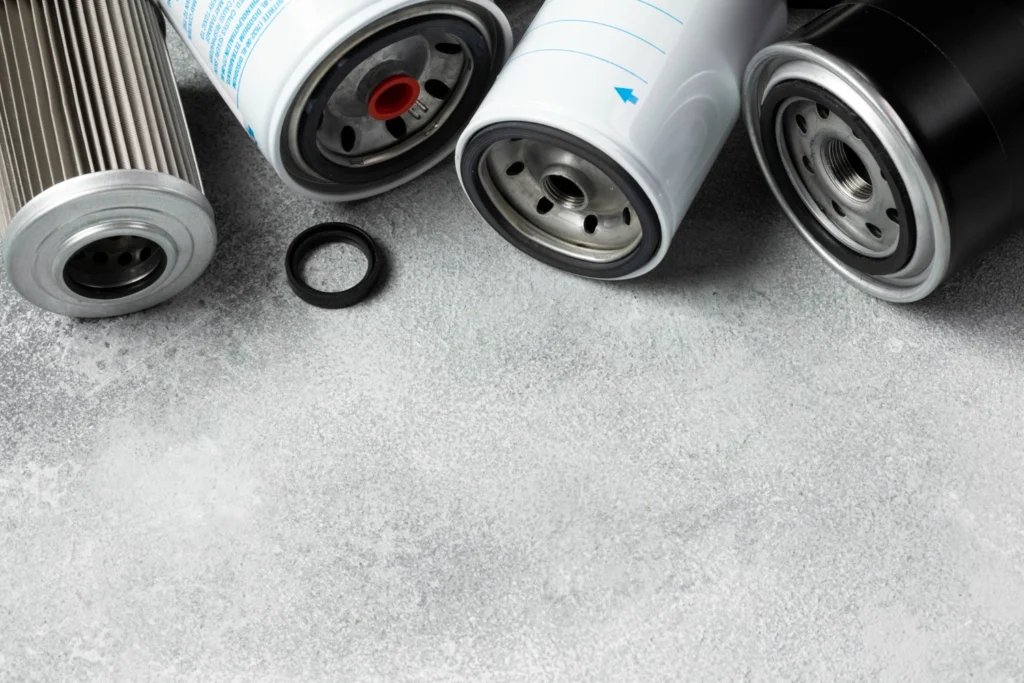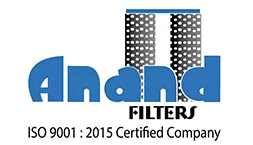
Is There a Difference Between Oil Filter and Hydraulic Filter?
Fluid health is crucial to system efficiency and lifetime in complex equipment. Oil and hydraulic filters are unsung heroes who clean and purify vital lubricants. They also prevent pollutants from entering equipment systems. Oil filters in internal combustion engines remove dirt, metal particles, and sludge from engine oil. This filtration procedure ensures engine efficiency and longevity by decreasing friction and wear on critical components.
In contrast, hydraulic filters protect hydraulic systems. They cleanse hydraulic fluid to prevent foreign particles from contaminating pumps, valves, and actuators. Both filters clean vital fluids to improve machinery performance and durability. The performance and lifespan of machinery depend on oil filters and hydraulic filters. Oil filters improve lubrication in internal combustion engines. Removing impurities from engine oil reduces friction and engine wear. It improves fuel efficiency and engine performance, extending engine life. Hydraulic filters are essential in hydraulic systems. These filters ensure smooth operation and reduce system failures by keeping impurities out of hydraulic fluid.
Applications of Oil Filters and Hydraulic Filters in Machinery:
Oil and hydraulic filters are widely used in many industries and are essential to smoothly operating a wide range of machinery. In the automobile industry, an oil filter aids in the removal of impurities that may build up in your car’s oil over time while the oil keeps your engine clean. Clean motor oil is crucial because, if left unfiltered for a while, it may fill with hard, microscopic particles that might wear down the surfaces of your engine.
A filter made specifically to take impurities out of hydraulic fluid is called a hydraulic oil filter. Many different types of machinery, including manufacturing, agricultural, and construction equipment, require hydraulic fluids. Hydraulic oil filters must eliminate particulate matter, water, and other impurities from the hydraulic fluid. Particulate particles can block pipes, wear down components, and lower hydraulic systems’ efficiency. Water can cause component rust and corrosion. Debris, dirt, and dust can all be additional pollutants. Usually, a paper or cloth element in hydraulic oil filters collects impurities as the fluid flows through it.
When the incorrect filter is used in a particular application, the results can be dire and extensive. Incompatibility could reduce the filter’s effectiveness, letting pollutants move quickly throughout the system. It may decrease machinery performance, wear on essential parts, and even cause system breakdowns. Choosing the appropriate filter for each application is crucial because making the wrong decision can lead to expensive damage and delay.
Maintenance and Replacement
Ensuring the longevity and best functioning of hydraulic and oil filters requires effective maintenance. Adhering to specified maintenance schedules is crucial, and the first step is comprehending the particular needs.
- Maintaining Oil Filters:
Preventing pollutants from entering the system at the outset is the best way to stop filters from filling up with dirt. Because particles produce particles, internal contamination decreases with the number of external contaminants that enter. To maintain installed oil filters, adhere to these guidelines:
- Install the correct breathers to keep moisture and impurities out of the system.
- Use wipers and boots to keep seals and cylinders dry and clean.
- Choose the correct oil grade and additive package to reduce internal friction and pollutant infiltration.
- Maintenance for Hydraulic Oil Filters:
Your hydraulic system’s smooth operation greatly depends on your hydraulic oil filters. To keep your filters in optimal condition, follow these maintenance guidelines:
- Regularly check the filter for any accumulation of trash and grime. The system may sustain harm if the filter becomes clogged, which will decrease the oil flow.
- Replace the filter when it wears out or breaks. A worn-out or damaged filter might lead to malfunctions and other issues with the system.
- Make sure the filter you choose is the right kind for your system. An incorrect filter can harm your equipment or result in system issues.
- Observe the replacement interval guidelines provided by the manufacturer. Avoid attempting to prolong the life of your filters beyond advised limits, as this may cause significant issues in the future.
Industries that depend on hydraulic systems must comprehend the significance of appropriate hydraulic oil filter maintenance schedules. Hydraulic filter suppliers greatly aid in providing superior filters suited to specific machinery requirements. By providing filters made to endure the rigors of hydraulic systems, hydraulic filter suppliers substantially contribute to the maintenance procedure.
Compatibility and Interchangeability
There are filters available now that, given similar expectations, can be used interchangeably, from hydraulic systems to gravity-flow lubricant oil filters. To get the desired effects, pore size, surface area, pressure, and flow velocity must all be considered. Handle cross-compatibility carefully, as an improper filter can impair filtration effectiveness and cause harm to the system. However, as filtration methods and technology progress, some filters may become interchangeable. Thoroughly understanding compatibility rules and specifications is essential for fully exploring these possibilities.
Oil filter and hydraulic filter cross-compatibility might have advantages and drawbacks. Positively, it might provide flexibility in some applications, enabling the employment of an appropriate filter in circumstances where the authorized filter would not be easily accessible. However, balancing these advantages with possible drawbacks, including reduced filtering effectiveness and a higher chance of system damage, is essential. When considering cross-compatibility, careful thought and attention to manufacturer specifications are crucial.
Conclusion
For optimal machinery performance, distinguish oil filters from hydraulic filters. Clean engine oil, reduce friction, and boost fuel efficiency with oil filters. In contrast, hydraulic filters protect essential components from pollutants. Different functions distinguish oil filters for engines and hydraulic filters for hydraulic systems. Understanding this discrepancy is crucial to machinery longevity and efficiency. A suitable filter for proper application is essential for machinery performance. It delays system breakdowns, lowers wear, and increases equipment life. Thus, organizations seeking smooth machinery functioning and long-term functionality must carefully select filters.

